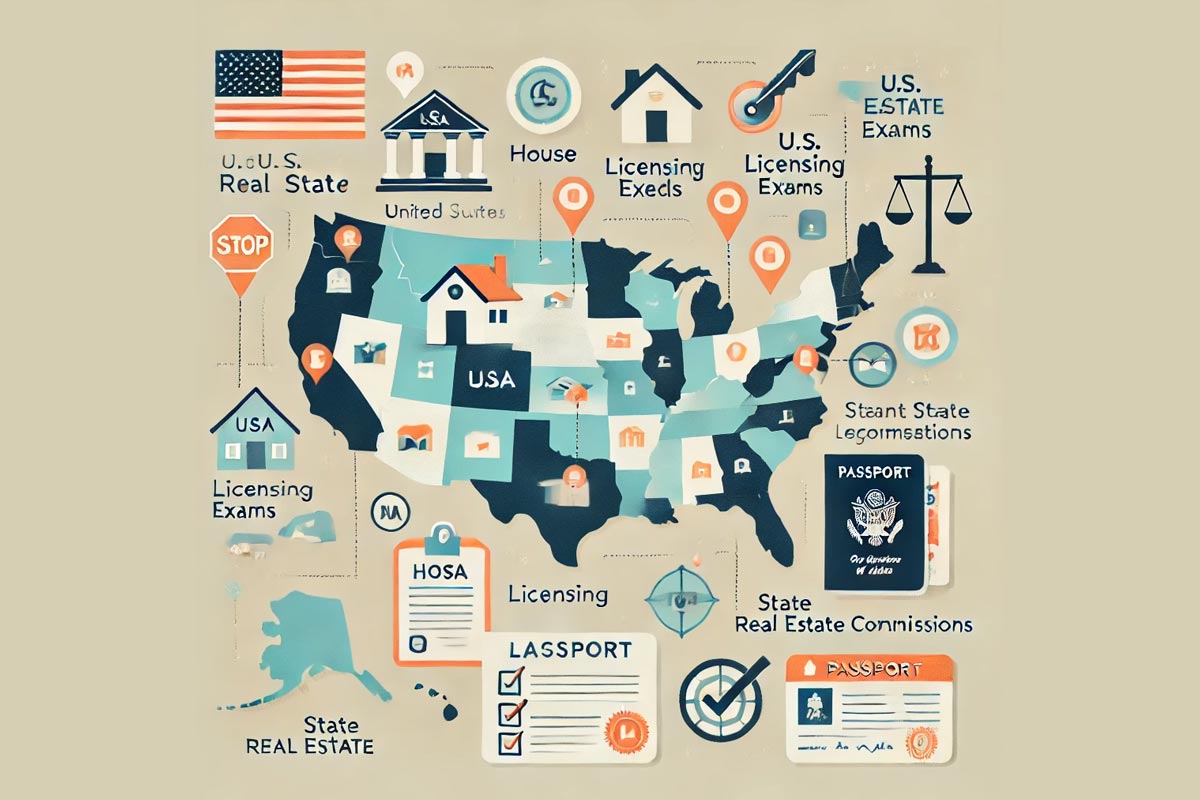
As a newly licensed Realtor fresh out of real estate school, you’re stepping into a world brimming with opportunity. While early career success often focuses on growing your client base, closing Read more...
As a newly licensed Realtor fresh out of real estate school, you’re stepping into a world brimming with opportunity. While early career success often focuses on growing your client base, closing your first few deals, and establishing credibility, it’s equally important to consider your long-term financial health. Strong financial planning for Realtors isn’t just about the here and now—it’s about setting the stage for a comfortable and secure retirement.
Establishing the Right Mindset from Day One
The excitement of starting your career can overshadow thoughts of the future. However, integrating retirement strategies for real estate professionals into your routine from the very beginning can pay off exponentially. By setting aside funds early and often, you’ll leverage decades of compounding growth, ensuring you have a robust nest egg when the time comes to slow down.
Why Start Saving Early?
Compounding Returns: The sooner you invest, the longer your money has to grow. Even modest monthly contributions can accumulate into significant sums over 20 or 30 years.
Market Volatility Cushion: By starting early, you have time to ride out market dips and fluctuations without derailing your long-term plans.
Building Confidence: Having a dedicated retirement account, diversified investments, and a long-term perspective will ease stress and guide better decision-making.
Understanding Market Cycles and Influences
A crucial aspect of financial planning for Realtors is understanding how market cycles affect both your commissions and your investments. Knowledge gained from attending a reputable real estate school helps you anticipate market shifts, enabling you to position your investments accordingly. For instance, during a seller’s market, you might focus on maximizing commissions to boost your savings, while a buyer’s market may create opportunities for acquiring investment properties at attractive prices.
Balancing Earned Income with Investment Income
As a Realtor, your earned income derives directly from your sales commissions. While this can be lucrative, it’s also cyclical. Diversifying your income streams is essential, and real estate investment tips can help you strategically acquire rental properties or other assets that generate passive income. Over time, these investments can reduce your reliance on transactional commissions and help stabilize your earnings.
Actionable Steps for Early-Career Realtors
Automate Savings: Set up automatic transfers from your checking account to a retirement account every month.
Budget Rigorously: Track your expenses, identify areas to cut back, and allocate the freed-up funds to investments.
Seek Professional Guidance: A financial advisor or CPA who understands the unique challenges of your career can help tailor your plan.
Invest in Education: Regularly refresh your skills through real estate school courses to stay informed about market trends and best practices, enhancing both your sales abilities and investment acumen.
Crafting a Long-Term Investment Strategy
When building a long-term portfolio, consider blending stable, income-generating investments like rental properties with growth-oriented assets such as stocks or REITs. This balanced approach helps mitigate risk and ensures consistent returns. By incorporating retirement strategies for real estate professionals that leverage your industry knowledge, you gain a competitive advantage, picking properties that align with long-term market projections.
Building a Strong Client Base and Referral Network
While not directly related to retirement, having a loyal clientele and a solid referral network can indirectly support your financial stability. A robust pipeline ensures steady commissions, reducing the pressure to make reactive financial decisions. This consistent income stream allows you to systematically invest and grow your retirement funds over time.
The Role of Real Estate School in Financial Planning
A well-respected real estate school like ADHI Schools offers more than just licensing preparation. It can provide advanced training on industry dynamics, investment analysis, and negotiation skills. Armed with this knowledge, you can identify undervalued properties, negotiate favorable terms, and time your market entries and exits efficiently—all of which contribute to a stronger retirement portfolio.
Adjusting as Your Career Evolves
Your financial goals will evolve alongside your career. As you gain experience and close more deals, your savings capacity may grow. Reassess your retirement strategy periodically, and consider increasing monthly contributions, adjusting asset allocations, or adding new investment vehicles. Continuously refine your approach to maintain alignment with your changing professional and personal circumstances.
Keeping the End Goal in Sight
Financial planning for Realtors goes beyond dollars and cents. It’s about ensuring that after decades of hard work, you can enjoy a comfortable retirement without financial stress. By starting early, learning continuously at a quality real estate school, and making informed, disciplined choices, you’ll pave a path to lasting security—ensuring that your future self will thank you for the smart decisions you made today.
Love,
Kartik
|

As an agent, you spend much of your time analyzing sales data, advising clients, and networking to uncover hidden deals. You understand how every piece of a transaction impacts a buyer’s bottom line. Read more...
As an agent, you spend much of your time analyzing sales data, advising clients, and networking to uncover hidden deals. You understand how every piece of a transaction impacts a buyer’s bottom line. Yet many agents forget to leverage these advantages when purchasing their homes. By representing yourself, you tap into exclusive resources like the Multiple Listing Service (MLS), have the ability to apply your negotiation expertise directly, and even earn the buyer’s side of the commission. But you’ll also need to remain objective—sometimes easier said than done—and work closely with your brokerage to ensure a smooth process.
Unlocking the Power of the MLS
Your first major advantage as a real estate professional is your direct access to the MLS. Unlike public-facing sites, the MLS offers comprehensive, up-to-the minute information on available properties.
Exclusive and Pre-Market Listings: You can learn about “coming soon” properties and other MLS statuses that never appear on the popular real estate portals. This early access allows you to submit offers before a surge of interest.
Brokerage Variations: Some brokerages provide different commission splits to their sales staff when they buy their own home. Know your brokerage’s policies to get the most out of the system.
Real-Time Updates: The MLS refreshes listings more quickly than general real estate platforms. By staying on top of these updates, you can move fast in competitive markets and gain an edge over other buyers.
By using the MLS to its full potential, you can uncover properties the public doesn’t even know about—often leading to less competition and potentially better deals.
Working with Your Brokerage
Before you dive headfirst into self-representation, it’s wise to have a conversation with your broker. Establishing clear expectations and understanding all office policies upfront can prevent misunderstandings later.
Commission Splits: As mentioned, confirm your office's commission policy for self-representation. Some brokerages let you keep most (or all) of the buyer’s agent commission, while others require a standard split.
Broker Support: Make sure your broker fully supports your plan. An ally in the office can help you navigate administrative or compliance-related hurdles.
Legal and Ethical Guidelines: Even if you act as a buyer and agent, you must follow all licensing laws, ethical rules, and local regulations—Double-check before making an offer, double-check office guidelines regarding disclosures, escrow processes, and contracts.
Having these details worked out ahead of time can prevent potential conflicts down the road and ensure that you remain on good terms with your brokerage.
Market Mastery: Navigating Trends and Pricing
Your experience analyzing market trends, comparable sales, and property data is one of your most valuable assets. Applying this insight to your purchase can help you spot undervalued homes and avoid overpaying.
Neighborhood Patterns: You know which neighborhoods are up-and-coming or experiencing price reductions. Buying in a neighborhood on the rise can lead to increased equity over time.
Data-Driven Comparables: Rather than relying on general online estimates, you can analyze the exact sale prices of similar homes. This data helps you craft a competitive but fair offer.
Timing the Market: Knowing when to act can be crucial, but remember that perfectly timing the market is notoriously tricky. Focus on finding the right property for your needs and negotiating the best price within current market conditions.
You can minimize risks and maximize your potential gains by combining real-time data and local insight and focusing on long-term benefits.
The Art of the Deal: Negotiating Like a Pro
Negotiation is often deciding how much you save on a home. As a real estate agent, you negotiate daily—but it can feel different when it’s your own money on the line.
Set Clear Goals: Just as you would advise a client, define your must-haves and deal-breakers early. This clarity will guide your decisions and keep you from overextending yourself when emotions are high.
Maintain Objectivity: Even seasoned negotiators can become emotionally invested when purchasing their home. Try to apply the same detachment and professionalism you would use for a client.
Price Negotiation Strategies: If a property is overpriced or needs substantial updates, don’t hesitate to offer below asking—or request closing cost credits. Your market data and experience can back up these requests.
Contingency Clauses: Whether you include financing, inspection, or appraisal contingencies, you can protect your interests without making your offer unattractive to sellers.
Flexible Closing Terms: Offering a quick close or adjusting the closing date to the seller’s preference can give you leverage. Often, these terms are just as appealing as a higher purchase price.
By applying your negotiation expertise and staying level-headed, you can secure favorable terms that reflect your best interests.
Due Diligence and Risk Mitigation
A thorough approach to due diligence is crucial for avoiding costly surprises. Remember - you’re protecting yourself.
Comprehensive Inspections: Beyond a general home inspection, consider specialized inspections such as termite, roof, sewer, or plumbing, especially if you suspect any underlying issues.
Environmental Assessments: If the property is older or in an area with potential ecological risks, look into environmental reports or assessments to ensure you know exactly what you’re buying.
Title Reports and Disclosures: Carefully review the title report for liens or easements, and don’t gloss over seller disclosures. Past water damage or unpermitted work can affect property value and safety.
Legal Requirements: Your day-to-day experience with contracts means you know how small mistakes can lead to significant legal problems. Double-check every clause to ensure your interests are fully protected.
Appraisal Considerations: Collaborate with your lender (or use your market knowledge if you’re paying cash) to ensure the property’s value aligns with the agreed purchase price.
Putting in the extra effort now can save you from expensive repairs or legal disputes after the deal closes.
Financial Benefits: Quantifying Your Savings
One of the most compelling reasons to represent yourself and earn your real estate license is the potential to keep a significant portion of the buyer’s agent commission.
Example: On a $600,000 home with a 3% buyer’s agent commission, that’s $18,000. Depending on your brokerage agreement, you might keep most—or all—of that amount.
Potential Uses for Savings: You could use these funds to make your down payment, cover closing costs, or invest in renovations.
A Caveat: Actual savings will depend on your brokerage policies and the specifics of the transaction. However, the financial benefits of self-representation are often substantial—and can provide a powerful boost to your overall home investment.
This extra capital can lower your monthly mortgage, bolster your equity position, and offer more options for future investments.
Maximizing the Advantage: Self-Representation Done Right
So, how can you ensure you get the most out of representing yourself?
Streamlined Communication: Because you’re both the buyer and the agent, you eliminate potential miscommunication about your needs and decisions.
Tailored Strategies: Every action you take—from market research to negotiations—directly supports your personal goals, allowing for a seamless, customized approach.
Efficient Process: You already know how to coordinate inspections, work with lenders, and manage paperwork, saving time and reducing stress.
Balancing Emotion and Expertise: Recognize that buying a home can be as emotional for an agent as it is for a client. Rely on your professional discipline to keep negotiations on track.
By merging your personal needs with your professional skill set, you can transform a typical real estate transaction into a highly strategic move.
As a real estate agent, you possess invaluable knowledge about listings, market trends, and negotiation tactics. By representing yourself, you can leverage all those strengths to find your dream home before it hits the market—potentially saving thousands of dollars. Be sure to have an open discussion with your broker, maintain objectivity, and follow through with thorough due diligence. With these steps, you’ll be well on turning your professional expertise into a significant personal advantage.
TLDR:
Don’t leave money on the table. Leverage your expertise, represent yourself, and find the perfect home while maximizing your savings.
Want to learn more about getting your real estate license and being able to represent yourself? Visit www.adhischools.com to get started.
Love,
Kartik
|

Owning a home isn't just about having a place to sleep—it's also a way to build wealth and give yourself more financial options. One of the main ways this happens is through home equity, which is the Read more...
Owning a home isn't just about having a place to sleep—it's also a way to build wealth and give yourself more financial options. One of the main ways this happens is through home equity, which is the difference between what your home is worth and what you still owe on it. Over time, you build more equity as you pay down your mortgage or if your property value increases. The increase in value, called appreciation, is influenced by factors like the desirability of your neighborhood, local market conditions, and overall economic growth. Eventually, if you pay off your mortgage, you own the entire value of your home.
For example, if you purchase a home for $300,000 with a 20% down payment ($60,000), you start with $60,000 in equity. As you continue making mortgage payments and your home's value rises, that equity grows. In addition to building equity, homeowners may also benefit from tax deductions on mortgage interest and property taxes, which can lead to significant savings over time.
Building equity isn't always easy. If home prices drop, you might owe more than your home is worth. This is called "underwater" on your mortgage, where the outstanding balance exceeds your home's current value. It often happens when the housing market takes a downturn or if you began with a huge loan and the home's value didn't grow as expected. When this occurs, some people wait for the market to improve so their home value can rise again. Others look into options like loan modifications or refinancing—if their lender allows it—to make their payments more manageable. In short, being underwater can be stressful, but it doesn't have to be permanent.
There are several ways to build more equity:
Start with a more significant down payment: The more you pay upfront, the more equity you will have immediately.
Make extra or larger mortgage payments: Paying more than the minimum can help you owe less fast.
Refinance to a shorter term: A 15-year loan, for example, can build equity faster than a 30-year one.
Invest in home improvements: Upgrading kitchens, bathrooms, or other parts of the home can boost its value.
Keep up with regular maintenance: Performing repairs and upkeep helps preserve your home's value and supports steady equity growth.
Once you have enough equity—often around 20%—you can borrow against it using options like a home equity loan or a home equity line of credit (HELOC). Home equity loans provide a lump sum of money at a fixed interest rate, while HELOCs work like a credit card with a revolving line of credit and a variable interest rate. People often use these options to consolidate high-interest debt, cover emergencies, pay for college, or invest in more home improvements. While borrowing against equity can be helpful, it also comes with risks you must fully understand before moving forward.
Risks of Borrowing Against Equity:
Interest Rate Fluctuations. If you choose a HELOC, your interest rate might change over time, causing your monthly payments to fluctuate.
Fees and Closing Costs: Home equity loans and HELOCs can include extra costs, such as closing fees, appraisal charges, or annual fees.
Impact on Your Credit Score: Taking on more debt can lower your credit score especially if you borrow a significant amount.
When to Use Home Equity:
While borrowing against your home equity can be a helpful tool, it's essential to use it wisely. Consider tapping into your equity for investments that will likely increase your home's value (like a kitchen remodel), to consolidate high-interest debt, or for essential expenses such as education or medical bills. On the other hand, avoid using your home's equity for non-essential purchases or risky investments that may not pay off in the long run.
Before borrowing against your equity:
Think carefully about how you'll repay the loan.
Remember that your home is the security for the debt, and if you miss too many payments, you could risk losing it.
Ensure you have a steady income and a clear plan to repay your debts.
Consider the pros and cons, and if needed, speak with a financial expert for guidance.
Owning a home is a big step toward creating a stable financial future. You can make smarter decisions by understanding home equity, knowing how to build it, and being aware of the risks and best uses of borrowing against it. With patience, planning, and proper maintenance, your home can be a place of comfort and a powerful tool for reaching your long-term financial goals.
Love,
Kartik
|

As a Realtor, your days are filled with meeting clients, hosting open houses, closing deals, and building your reputation. But have you considered what your life will look like when you decide to step Read more...
As a Realtor, your days are filled with meeting clients, hosting open houses, closing deals, and building your reputation. But have you considered what your life will look like when you decide to step back from these daily tasks? It's crucial to start planning for your financial future early in your career, just as you've helped others find their perfect homes.
Planning with well-thought-out retirement strategies for real estate professionals can set you on a path to a steady and comfortable future. By focusing on your long-term goals now, you can enjoy your later years without worrying about the next big sale.
Why Thinking Long-Term Matters
Real estate can be advantageous, but it isn’t always predictable. Economic changes, interest rates, or market trends can affect how much you earn. It would help if you had a plan beyond your next commission check to protect your future.
Your advantage as a Realtor is that you already understand the housing market. This knowledge gets even sharper when you invest your skills through our real estate school. With substantial market insights, you can make better choices about where and when to invest, helping you build a retirement plan that can withstand tough times.
The Importance of Risk Tolerance
Understanding your risk tolerance, or how much uncertainty you can handle, is a key factor in building a portfolio that allows you to sleep soundly at night. This knowledge gives you a sense of control over your financial future, empowering you to make informed decisions.
Younger Investors: If the market takes a dip, you might have more time to recover, so you can afford slightly riskier investments that could lead to higher long-term gains.
Mid-Career Investors: As you get older, reduce risk and focus on assets that are less likely to drop in value.
Approaching Retirement: Here, stability is often more important than aggressive growth. Income-producing investments can help you avoid major financial setbacks late in the game.
By regularly assessing your comfort with risk and adjusting your portfolio as your life changes, you’ll ensure that your retirement savings match your age and appetite for uncertainty.
Mixing Your Real Estate Investments
Real estate should still be a big part of your plan, but think about owning different kinds of properties:
Residential Rentals: Houses or apartments that provide steady monthly income.
Commercial Properties: Offices, stores, or warehouses that can bring in higher rents but can take more work to manage.
Short-Term Rentals: Vacation rentals that offer higher nightly rates in the correct location.
Considering REITs for Easier Investing
If you want to invest in real estate without the hassle of being a landlord, consider Real Estate Investment Trusts (REITs). These companies you can invest in—like buying a stock—own income-producing properties. REITs can help you gain exposure to various markets without managing properties yourself.
Adding Other Types of Investments
Don’t forget to look at investments outside real estate. Balancing your portfolio with other options can help protect your money if one area isn’t doing well:
Stocks or Index Funds: These give you a share of big companies and can help your money grow over time.
Bonds: These can provide steady interest payments and help balance out riskier investments.
Commodities or Precious Metals: Assets like gold can help shield your savings from inflation or economic downturns.
The Role of a Financial Advisor
When it comes to retirement strategies for real estate professionals, you don't have to go it alone. Working with a financial advisor who understands the real estate industry and the complex rules around investing can provide a sense of support and peace of mind.
Provide Personalized Guidance: Not all strategies work for everyone. An advisor can suggest investments that fit your specific goals and risk tolerance.
Help Manage Tax and Legal Issues: Real estate and investments come with rules and taxes that can be confusing. An advisor familiar with real estate regulations can help you avoid costly mistakes.
Offer Ongoing Support: As your life changes, your plan should, too. A good advisor will review your portfolio regularly and help you adjust.
Adjusting Your Plan Over Time
Your retirement goals will likely change as you move through different stages of your life. Early on, you should take more risks. Later, you might want safer options. Review your investments every year or two, and don’t be afraid to make changes that better fit your current situation. This might mean shifting away from riskier properties as you get older or investing more in steady income options as you near retirement.
Simple Steps to Strengthen Your Retirement
Start Early: The sooner you begin saving and investing, the more time your money has to grow.
Set Clear Goals: Decide how much you’ll need in retirement and work backward to see how much you should invest each month.
Know Your Risk Tolerance: Be honest about how comfortable you are with risk and build a portfolio that matches that comfort level.
Consult a Professional: A financial advisor who understands real estate can offer tailored guidance.
Keep Learning: Staying informed through courses at a reliable real estate school can help you keep an edge in a changing market.
The Value of Education in Your Decisions
Your ability to make wise investment choices improves as you learn more. Attending a well-regarded real estate school can teach you skills in judging property values, tracking market trends, and negotiating deals. This knowledge isn’t just for helping clients but also for making confident, informed decisions about your retirement plan. The value of education in your decisions cannot be overstated.
With a strong background in real estate fundamentals, you’ll be better at spotting good opportunities before everyone else, getting better loan terms, and knowing when it’s time to buy or sell. Good education gives you the tools to succeed, no matter what the market does.
Love,
Kartik
|

California Title Insurance: Protect Against Hidden Encumbrances
Have you ever heard a story about someone purchasing a home only to discover later that someone else claimed partial ownership or that Read more...
California Title Insurance: Protect Against Hidden Encumbrances
Have you ever heard a story about someone purchasing a home only to discover later that someone else claimed partial ownership or that an unpaid lien remained attached to the property? Issues like these can turn a dream home into a financial nightmare.
A property can have various ‘burdens’ on its title and while California law requires sellers to disclose known encumbrances, unforeseen issues can still surface. That’s where title insurance comes in. This article explains what title insurance is, what it covers, how it works, and why it’s so crucial for homebuyers in California.
What is Title Insurance?
Title insurance is a specialized insurance policy designed to protect your ownership rights and financial investment in real estate. Unlike homeowners’ insurance, which covers future events like fire or theft, title insurance safeguards you against past events that might affect the validity of your property’s title.There are two main types of title insurance policies:
Owner’s Policy: This policy protects the buyer’s interest in the property. It covers you up to the purchase price, shielding you from potential legal costs or financial losses if any undiscovered issues arise.
Lender’s Policy: Almost always required by lenders, this policy protects the mortgage company’s interest (usually up to the loan amount). If you finance your home with a mortgage, your lender will insist on a lender’s policy to ensure its investment is protected.
What Does Title Insurance Cover?
Title insurance shields you from problems that could emerge from previous owners or mistakes in the public record. Below are five common scenarios (out of many) that title insurance might cover:
Undisclosed Encumbrances: Sometimes, encumbrances such as easements or liens don’t appear in the initial public record search. For example, an easement that wasn’t properly recorded could give third-party rights to your property. Additionally, unpaid property taxes, mechanic’s liens (filed by contractors or builders for unpaid work), judgment liens, or even unrecorded mortgages may exist without your knowledge.
Errors in Public Records: Even minor clerical errors in deeds or misindexed documents can create significant complications. Mistakes like a misspelled name or wrong property description could lead to ownership disputes.
Fraud and Forgery: Unfortunately, identity theft and document forgery are realities in real estate. A past owner’s signature might have been forged on a deed or other legal document. Title insurance covers financial losses you could incur if you must defend your ownership against fraudulent claims.
Claims from Heirs: In some cases, a property might have been passed down through inheritance, and an undisclosed heir could appear, claiming rightful ownership or interest in the property. Title insurance protects you from these unexpected claims.
Boundary Disputes: Encroachments, as we learned, are a type of encumbrance. They arise when a fence, shed, or other structure crosses a boundary line. If a past survey was inaccurate or if a structure was built in the wrong place, you could face legal or financial consequences.
Real-World Example:
Imagine buying a home, moving in, and then receiving a notice stating that a builder had never been paid for renovations done by the prior owner. This builder filed a mechanic’s lien, which went unnoticed. Title insurance would pay off or resolve this lien, sparing you a significant financial burden.
The Title Search and Commitment
Before issuing a title insurance policy, the title company thoroughly examines county records, court filings, and other public documents to uncover any problems or “clouds” on the title. This extensive research helps identify mortgages, liens, easements, or other encumbrances that might affect ownership.
Once the search is complete, the title company issues a “title commitment” or “preliminary report.” This document details all the findings and lists any “exceptions” that the policy will not cover. Standard exceptions might include existing easements or restrictions on the property. It’s crucial for buyers (and their real estate agents or attorneys) to carefully review the title commitment before finalizing the purchase. If any red flags appear, you can address them or negotiate with the seller before closing.
How Much Does Title Insurance Cost?
Title insurance is typically a one-time premium paid at the real estate transaction's closing. In California, the cost varies based on the home’s purchase price and the county. It’s customary in many parts of California for the seller to pay for the owner’s policy, but this is negotiable.
Why is Title Insurance Important?
Financial Protection: Title insurance can save you from hefty legal fees or financial losses if a hidden title defect surfaces.
Peace of Mind: Knowing your ownership is shielded from past claims helps you focus on enjoying your new home.
Facilitates Future Transactions: A clear and insured title makes it easier to sell or refinance. Prospective buyers or lenders feel more comfortable knowing your property’s title is clean.
Legal Defense: Many title insurance policies cover the costs of defending against lawsuits challenging your ownership. In short, title insurance protects your wallet and your peace of mind.
Title insurance is crucial in the California home-buying process, ensuring that hidden encumbrances or past errors won’t jeopardize your investment. Discuss coverage details with your real estate agent, lender, or attorney for the best protection—putting into practice what you learned in real estate school.
Love,
Kartik
|

Are your clients tired of endless open houses and outdated listings? The truth is, many of them are already using technology to transform the home-buying process—and you can too.
Read more...
Are your clients tired of endless open houses and outdated listings? The truth is, many of them are already using technology to transform the home-buying process—and you can too.
As you know from our online real estate school, technology is transforming every stage of the real estate process, especially how we buy and sell homes.
From detailed online listings to immersive virtual tours, modern tools empower buyers to find their dream home faster and smarter than ever before. For real estate professionals, understanding these technologies is key to building trust, anticipating client needs, and staying competitive in today’s market.
This guide will not only explore the top real estate tools your clients are using but also show you how to incorporate them into your process to provide exceptional service and close deals efficiently.
Top Tech Tools Your Clients Are Using
Real Estate Portals: Your Clients’ First Stop
For most buyers, platforms like Zillow and Realtor.com are the starting point for their home search. These tools allow clients to browse listings, compare prices, and gather data before they even contact an agent.
Here’s what sets them apart:
Zillow: A popular choice for its user-friendly interface and "Zestimate" home value tool.
Realtor.com: Known for its accurate listings sourced directly from MLS databases.
How to Use This Insight:
As a professional, you’ll often need to address questions or misconceptions clients bring from these platforms. Be prepared to explain discrepancies between a "Zestimate" and actual market value or provide deeper insights into MLS listings they’ve already seen.
Must-Have Mobile Apps
Your clients aren’t just using websites—they’re taking their home search on the go with apps like those from Zillow or Realtor.com as examples. These apps offer:
Instant Alerts: Notifications for new listings help buyers act quickly in competitive markets.
GPS-Enabled Searches: Clients can explore homes near their current location during a neighborhood drive.
Seamless Syncing: Apps sync with web accounts, ensuring buyers can access saved searches anytime.
How to Use This Insight:
Encourage your clients to share their saved searches and alerts with you so you can align your efforts with their priorities. Download these apps yourself to stay in sync and respond quickly when clients flag potential properties.
Virtual Tours & 3D Walkthroughs
Virtual tours are becoming the new standard for clients who want to narrow their options before scheduling in-person visits. Tools like Matterport and Zillow’s 3D tours allow buyers to:
View layouts and finishes from the comfort of their home.
Visualize potential renovations or furniture placements.
Save time by eliminating homes that don’t meet their needs.
How to Use This Insight:
Consider investing in 3D walkthroughs for your own listings to meet client expectations. Use virtual tours as a discussion point, guiding clients to evaluate layouts and features they might overlook in photos.
Smart Search Strategies to Match Your Clients
Technology isn’t just about tools—it’s about using them effectively. Here’s how to leverage the strategies your clients are already employing:
Refine with Filters
Clients often use advanced search filters to narrow their focus:
Price range
Number of bedrooms and bathrooms
Amenities like pools, garages, or outdoor spaces
How to Use This Insight:
Help clients refine their search by advising them on realistic filters. For instance, suggest widening their price range slightly to account for negotiation opportunities.
Map-Based Searches
Proximity to schools, grocery stores, and public transit
Neighborhood amenities like parks or restaurants
How to Use This Insight:
Use the same maps your clients are exploring to highlight key features of a neighborhood. Show them how a home’s location aligns with their priorities, whether it’s a quick commute or walkable amenities.
Alerts and notifications
Buyers often rely on notifications to stay ahead in the market:
New listing alerts
Price change updates
How to Use This Insight:
Set up alerts on behalf of your clients to demonstrate your proactive approach. By monitoring updates in real-time, you can flag opportunities before they even ask.
Beyond the Listings
Buyers are no longer just shopping for a house—they’re evaluating neighborhoods, schools, and financial feasibility. Here’s how you can support their broader research:
Neighborhood Insights
Tools like Niche.com, GreatSchools.org and even Walk Score help clients assess community fit. They’re looking at everything from school ratings to crime data and walkability.
How to Use This Insight:
Position yourself as a local expert by complementing this data with your knowledge of the area. Offer personalized recommendations that validate or enhance the information clients find online.
Financial Tools
Clients are coming to the table armed with data from mortgage calculators, pre-approval tools, and budgeting apps.
How to Use This Insight:
Help clients interpret these tools by discussing factors like down payments, closing costs, or loan types. Your guidance can fill in gaps and build confidence in their decisions.
Your clients are already leveraging technology to streamline their home search—are you ready to meet them there? By understanding the tools they use and integrating them into your process, you can strengthen relationships, anticipate client needs, and provide an elevated level of service.
Love,
Kartik
|

For many international real estate students, pursuing a career in the U.S. real estate market can be a stepping stone to long-term professional success. Whether you’re aiming to earn your real Read more...
For many international real estate students, pursuing a career in the U.S. real estate market can be a stepping stone to long-term professional success. Whether you’re aiming to earn your real estate license or simply want to broaden your industry knowledge, studying in a U.S. real estate school offers a unique opportunity to learn best practices, gain exposure to complex regulations, and connect with invaluable professional networks. However, before you dive in, it’s essential to understand the requirements and potential challenges to maximize your educational experience.
Below, I break down critical considerations—ranging from visa requirements to cultural nuances—and offer concrete examples, reputable resources, and practical tips to help foreign students earn their real estate license and thrive in the U.S. market.
Visa and Residency Requirements for Licensing
Navigating Immigration Status:
Before enrolling in a real estate education program in the United States, your first step should be confirming your immigration status and visa eligibility. Most University based international students attend University on a valid student visa (F-1 or M-1), which allows for full-time study at a recognized institution. Keep in mind, however, that certain states have specific eligibility criteria for licensing. For instance, some states may require that candidates be U.S. citizens or permanent residents, while others—like Florida or Texas—allow non-residents to apply but may require additional documentation of lawful presence.
Coordinating With Authorities:
It’s wise to consult both U.S. immigration authorities and the licensing board of the state where you plan to practice. For immigration resources, visit the U.S. Citizenship and Immigration Services (USCIS) website. For state-specific licensing requirements, check each state’s real estate commission or board. For example, prospective licensees in California can find information at the California Department of Real Estate (DRE). By verifying these details early, you’ll reduce surprises and streamline your path to a license.
Language Proficiency and Course Accommodations
Meeting English Language Requirements:
Real estate coursework in the U.S. is primarily taught in English, and proficiency is critical for passing real estate exams and understanding industry jargon. Strengthening your English skills—particularly real estate terminology related to escrow, mortgage underwriting, and zoning—is essential.
Cultural Sensitivity in Real Estate Interactions
Adapting Communication Styles:
Cultural nuances extend beyond language proficiency. Understanding American business etiquette, negotiation styles, and client expectations can enhance your effectiveness as a real estate professional. For example, straightforward communication, punctuality, and direct eye contact are often valued in U.S. business settings. Familiarizing yourself with local customs—such as the appropriate use of personal space, acceptable gift-giving practices, or how to address clients formally and informally—can help build trust and credibility.
Embracing Diversity:
The U.S. real estate industry is shaped by buyers, sellers, and investors from diverse backgrounds. Being sensitive to cultural differences—whether related to decision-making processes, family involvement, or religious considerations—can help you better serve a broad range of clients. Seek out cultural awareness workshops, or talk with mentors from various communities to understand common preferences and communication norms.
Understanding U.S. Property Law and Regulations
State-by-State Differences:
Real estate is regulated primarily at the state level, resulting in a patchwork of laws and licensing requirements. For example, New York’s continuing education rules differ significantly from those in Georgia or Washington State. Understanding local landlord-tenant statutes, disclosure obligations, environmental regulations, and other property-related laws is vital. The National Association of Realtors (NAR) and state real estate associations are excellent starting points for guidance and educational resources.
Federal Guidelines and Industry Ethics:
In addition to state-level rules, you’ll need to understand federal fair housing laws and anti-discrimination measures enforced by agencies such as the U.S. Department of Housing and Urban Development (HUD). Ethical standards, largely shaped by professional associations, promote consumer protection and industry integrity. Familiarizing yourself with these regulations ensures you serve your clients fairly and ethically.
Additional Credential Evaluations and Reciprocity Issues
Evaluating Foreign Credentials:
If you have a real estate-related degree or license from abroad, consider having your credentials evaluated by a recognized organization. Services like World Education Services (WES) or Educational Credential Evaluators (ECE) can review your transcripts and equate them to U.S. standards. While this may not exempt you from state pre-licensing courses, it can streamline the admissions process for certain schools or programs.
Examples of State Reciprocity Agreements:
Some states have reciprocity agreements allowing currently licensed agents from certain jurisdictions to bypass parts of the licensing process. To find out if reciprocity applies to you, consult your target state’s real estate commission—such as the Florida Real Estate Commission (FREC) —for up-to-date information on reciprocity agreements.
Tips for Succeeding as an International Candidate
Networking and Mentorship:
Building relationships is key to success in real estate. Attend local chapter meetings of organizations like the Asian Real Estate Association of America (AREAA) or ethnic-based real estate groups that welcome diversity. Seeking a mentor—perhaps through alumni networks or real estate professionals in your community—can provide valuable insights, career guidance, and introductions to potential employers.
Hands-On Experience:
Internships, job shadowing, or part-time roles at real estate brokerages help reinforce what you learn in class. By applying classroom concepts in real-world scenarios, you’ll develop confidence, sharpen communication skills, and gain critical exposure to the daily operations of a real estate office.
Hands-On Experience:
The U.S. real estate landscape evolves rapidly due to changing market trends, emerging technologies, and new regulations. Staying current might involve obtaining additional certifications, such as Accredited Buyer’s Representative (ABR®) or Certified International Property Specialist (CIPS), both offered by NAR. These designations can distinguish you from other foreign students seeking a U.S. real estate license and demonstrate your commitment to professional growth.
For those looking to study in real estate school USA programs, the journey is both challenging and rewarding. By understanding visa requirements, honing language and cultural competency, mastering U.S. property law, and being strategic about credential evaluation and reciprocity, international real estate students can confidently navigate the licensing process. With dedication, adaptability, and cultural sensitivity, foreign students can thrive and build a successful career in the diverse and dynamic U.S. real estate industry.
Love,
Kartik
|

Effective January 1, 2025, Assembly Bill 2622 (AB 2622) significantly changes California's contractor licensing requirements. This update directly affects real estate agents, brokers, investors, Read more...
Effective January 1, 2025, Assembly Bill 2622 (AB 2622) significantly changes California's contractor licensing requirements. This update directly affects real estate agents, brokers, investors, and homeowners who hire individuals for home improvement or construction projects. Below, I will explore the key elements of AB 2622, why it matters even if you are just starting real estate school, and how real estate professionals can use this knowledge to serve their clients better and protect their interests.
Key Changes Introduced by AB 2622
A. Increased Exemption Limit
Under prior law, unlicensed individuals could perform construction work if the total cost of labor, materials, and other project expenses did not exceed $500. Under AB 2622, this threshold is raised to $1,000, effectively allowing unlicensed persons to handle more minor jobs without violating California's Contractors State License Law.
B. Building Permit Requirement
The new exemption applies only if no building permit is required. If the scope of work triggers a building permit—for example, electrical rewiring, plumbing changes, or structural modifications—an unlicensed individual cannot legally take the job. In such cases, a licensed contractor is mandatory.
C. Restriction on Employing Others
A critical addition is that unlicensed individuals under this exemption cannot employ any other person to perform or assist with the work. When another individual is brought on board—whether paid or unpaid—the exemption no longer applies, and a contractor's license is required.
Impact on the Real Estate Industry
A. Real Estate Agents and Brokers
1. Avoiding Liability
Proper Disclosures: When representing clients, listing agents and sellers should confirm whether any recent renovations fall under this new $1,000 limit and whether permits were required but not obtained. Disclosing unpermitted or incorrectly permitted work could expose liability issues.
Compliance Check: By understanding AB 2622, agents can spot red flags—like multiple small jobs potentially split to avoid licensing requirements—thereby safeguarding clients from legal disputes.
2. Negotiation Leverage
Price Adjustments: Knowledge of whether work was performed by a licensed contractor or an unlicensed individual can significantly affect property valuations. Unpermitted work or questionable quality might justify a lower offer or prompt a repair request. Conversely, adequately documented upgrades can bolster a seller’s asking price.
Confidence in Transactions: A firm grasp of these regulations allows agents to negotiate more effectively. Agents identifying compliance issues can use that information to protect their clients' interests and potentially secure better terms.
3. Building Trust and Credibility
Demonstrating Expertise: Clients value real estate professionals who can expertly navigate the complex web of state regulations. By explaining AB 2622 and its implications, agents position themselves as a trusted advisor, which can lead to stronger referrals and repeat business.
Professional Growth: Continued real estate education on legislative updates helps agents maintain a competitive edge and enhances their reputation in a crowded marketplace.
B. Real Estate Investors
1. Permitting Nuances
Local Codes: Depending on local building codes, even smaller jobs—like adding electrical outlets or replacing certain plumbing fixtures—might trigger permit requirements. Investors should do due diligence before starting any project.
Avoiding Costly Mistakes: Failing to secure permits when required can lead to fines, forced rework, and delayed timelines that eat into profit margins.
2. Cost Savings vs. Quality Concerns
Safety Issues: Hiring an unlicensed individual can save money, but the risk of subpar workmanship is real. Poor electrical or plumbing work can create health or safety hazards, hurting the property's long-term value.
Hidden Problems: Unlicensed work may introduce latent defects, issues that surface after the project is complete and potentially cause expensive repairs.
Insurance and Financing: Coverage or financing can be jeopardized if an insurer or lender discovers that work was done improperly or without the proper permits. Some insurance policies may exclude damages stemming from unlicensed or unpermitted work.
3. Long-Term Marketability
Resale Considerations: When an investor plans to flip or rent out a property, prospective buyers and tenants often ask about the quality of renovations.
Balancing Act: Using an unlicensed individual may make sense for tiny, simple tasks under $1,000. However, hiring a licensed contractor is often safer for anything potentially requiring a permit or multiple workers and may improve the property's overall appeal.
C. Homeowners
1. Due Diligence
Insurance Review: Before hiring an unlicensed individual for small projects, homeowners should check whether their insurance covers injuries or damages from unlicensed work. Some policies have exclusions.
Written Contracts: Even for minor tasks, having a written agreement that outlines the scope of work, payment terms, and timelines can prevent disputes.
Confirm Permits: Always verify if a building permit is required. If so, the homeowner must hire a licensed contractor regardless of the project's cost.
2. Risks and Benefits
Potential Cost Savings: The increased $1,000 threshold can make minor repairs or aesthetic updates more affordable for homeowners.
Liability and Quality: Hiring an unlicensed individual may leave the homeowner limited legal recourse if the job goes wrong. Always weigh immediate cost savings against the potential for future headaches.
3. Staying Compliant
Avoiding Fines: Projects without the required permit can lead to penalties and complications during a future sale.
Protecting Property Value: Quality, properly documented work generally enhances a home's value, while unpermitted or shoddy work could detract from it.
Advertising Changes Under AB 2622
Unlicensed individuals may now legally advertise for jobs under $1,000 provided:
No Permit Required: The work doesn't trigger any building permit requirements.
Clear Disclosures: The advertisement explicitly states: "I am not a licensed contractor."
Solo Work: Unlicensed people cannot employ anyone else to assist with the job.
Misrepresenting licensure status or splitting a more extensive project into multiple smaller ones (each under $1,000) to evade these rules is illegal and can lead to penalties.
or lead to financial losses.
Your Next Steps
1. Read the Full Text of AB 2622
For the exact language of the law, visit the California Legislative Information website and review Business and Professions Code Sections 7027.2 and 7048.
2. Consult the Contractors State License Board (CSLB)
Check a contractor's license status or learn more about licensing requirements by visiting the CSLB website.
3. Consider Continuing Education
Whether you're an agent seeking to differentiate yourself, an investor optimizing your strategies, or a homeowner ensuring compliance, staying educated on these laws is crucial. Find reputable real estate courses or legal resources that delve into contractor licensing, property disclosures, and best practices.
4. Perform Due Diligence
Confirm if a building permit is required. Always get references, a written scope of work, and proof of insurance—even if the work seems small.
AB 2622 introduces critical updates to California's contractor licensing laws by raising the exemption threshold to $1,000, clarifying the need for building permits, and restricting unlicensed individuals from hiring help. These changes affect real estate agents, brokers, investors, and homeowners, influencing how renovations are approached, disclosed, and negotiated.
Understanding these regulations can provide:
Liability Protection for real estate professionals who accurately disclose property improvements.
Investment Security for those fixing and flipping properties or building their rental portfolios.
Peace of Mind for homeowners making small-scale improvements while avoiding legal pitfalls.
Staying informed is half the battle, and resources are available to help you succeed. By taking advantage of educational programs and consistently monitoring regulatory updates, you'll be well-prepared to navigate California's evolving real estate landscape.
With AB 2622 having taken effect on January 1, 2025, now is the time to proactively adapt, ensuring you and your clients remain compliant and well-informed in California real estate.
Love,
Kartik
|

The Impact of School Districts on Home Values
In the affluent town of Palo Alto, California, known for its top-ranked public schools and proximity to Silicon Valley, the median home price soars Read more...
The Impact of School Districts on Home Values
In the affluent town of Palo Alto, California, known for its top-ranked public schools and proximity to Silicon Valley, the median home price soars to over $3.5 million—nearly five times the state average. This stark contrast underscores a broader phenomenon: the undeniable link between school district quality and home values. For families with school-age children, the appeal of excellent schools often outweighs other considerations when choosing where to live. However, while strong school districts drive up property values and attract investment, underperforming schools can have the opposite effect, contributing to economic challenges and diminished community appeal.
Buyers will inevitably ask our real estate school graduates, 'How are the schools?' To address this, we should examine the complex relationship between school district quality and home values, exploring the factors that contribute to this connection and its implications for homeowners, buyers, and communities. But this is not just a matter of economics; it has profound social implications that cannot be ignored.
Factors That Influence Home Values in Strong School Districts
The connection between school district quality and home values stems from a variety of factors:
Academic Performance: Metrics like test scores, graduation rates, and college acceptance rates are often key indicators of school quality. Neighborhoods with high-performing schools consistently command higher home prices as parents prioritize academic outcomes for their children.
School Reputation and Rankings: Perception matters. Well-ranked schools in national and state evaluations tend to attract more homebuyers, even if those rankings only partially capture the school's actual quality.
Educational Programs and Resources: Specialized programs such as STEM initiatives, arts education, and robust extracurricular activities can significantly enhance a school’s appeal, boosting the desirability of homes in the area.
Teacher Quality: A strong teaching staff, characterized by experience, qualifications, and low turnover rates, is another major draw for families, adding to the prestige and performance of a school district.
School quality significantly shapes local economies by driving home values and influencing overall housing market trends.
The Economic Impact
Property Taxes: School districts are largely funded by local property taxes, creating a feedback loop where desirable districts see rising home values, which in turn generate more funding for schools. This cycle perpetuates disparities between affluent and less affluent areas.
Demand and Supply: Top-rated school districts often face high demand for limited housing stock. This scarcity drives prices upward, creating a competitive housing market where families are willing to pay a premium.
Return on Investment: Homes in desirable school districts typically retain or increase in value over time, making them a smart long-term investment. Even for buyers without children, the resale value of such homes remains a compelling incentive.
Affordability and Gentrification: Rising property values in sought-after districts can price out lower-income families, potentially leading to gentrification and displacement. This dynamic raises questions about equity and access to high-quality education.
Social and Community Impacts
The economic dynamics of strong school districts—such as increased property taxes and competitive housing markets—extend beyond finances, shaping the very fabric of local communities. These economic trends inevitably influence social structures and community engagement, revealing deeper implications for residents and neighborhoods.
Demographics: The quality of a school district often influences the socioeconomic and other demographics of a community. Affluent families are more likely to move into areas with strong schools, potentially exacerbating segregation.
Community Involvement: Strong schools foster a sense of community pride and engagement. Parents are more likely to participate in school activities, local governance, and volunteer efforts, further strengthening the neighborhood.
Amenities and Development: The presence of high-performing schools attracts additional investments in community amenities like parks, libraries, and local businesses, which further enhance property values.
Socioeconomic Disparities: The cycle of affluent communities benefiting from better-funded schools while less affluent areas struggle highlights a critical equity issue. This disparity perpetuates systemic inequalities that can have long-term societal consequences.
Although the social and community benefits of strong school districts are significant, they are not without challenges. A closer look at these complexities highlights key nuances, such as equity issues and market fluctuations, which underscore the importance of a balanced and inclusive approach.
Considerations and Nuances
Beyond Test Scores: While test scores are often the most visible metric of a school’s success, factors like school safety, diversity, and climate are equally important for families and communities.
Hyperlocal Variations: Even within highly rated school districts, there can be significant variations in school quality, influenced by factors like school size, administration, and community support.
Market Fluctuations: Economic downturns and housing market volatility can affect property values in even the most desirable school districts, though these areas often recover more quickly.
Equity in School Funding: The reliance on property taxes to fund schools often perpetuates disparities, with wealthier areas enjoying better resources. Addressing this inequity is crucial for fostering more balanced opportunities.
Alternative Schooling Options: The availability of charter and private schools adds another layer of complexity to the relationship between school districts and home values. In areas with high-performing private or charter schools, families may prioritize access to these institutions over public schools, potentially reducing the pressure on housing demand within certain districts. Conversely, the presence of prestigious private schools can increase overall home values in a region, as families seek proximity to these institutions regardless of the quality of the local public schools. This dynamic illustrates how alternative schooling options can shape housing markets in unexpected ways.
The impact of school quality extends far beyond the classroom, shaping everything from local economies to social structures. But this influence comes with a price, raising concerns about housing affordability and equity.
To address these issues, policymakers should consider several specific actions:
Increase State and Federal Funding: Allocate more resources to schools in lower-income areas to reduce disparities in educational quality and resources.
Implement Property Tax Reforms: Explore alternative funding models, such as pooling property taxes across districts, to ensure a more equitable distribution of school funding.
Support Holistic Education Metrics: Encourage policies that evaluate schools beyond test scores, including factors like student engagement, safety, and extracurricular opportunities.
The connection between school district quality and home values is both powerful and complex. Strong schools benefit not just individual families but entire communities, boosting local economies and fostering a sense of well-being. However, this relationship also creates challenges, such as rising housing costs, widening inequalities, and systemic barriers that leave many behind.
For homebuyers and homeowners, understanding this connection is key to making decisions that align with their priorities. But the responsibility for addressing these deeper issues lies with policymakers. By tackling funding gaps, looking beyond test scores to evaluate schools, and exploring creative solutions, we can build a fairer system—one that ensures all families and communities have access to the benefits of excellent education.
Love,
Kartik
|
Read more...
Stepping into the real estate industry can feel like venturing into uncharted territory. One of the most pressing questions new agents grapple with is, 'Where do I find my first leads and clients?'
|









